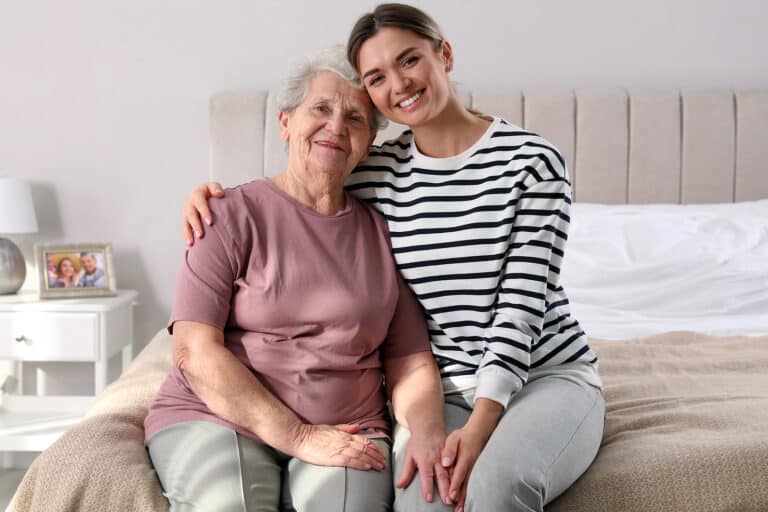Parkinson’s disease is a progressive neurological disorder that significantly impacts the motor and non-motor functions of those affected. As the disease advances, individuals often face increasing challenges in managing daily activities and maintaining their quality of life.
For aging seniors with Parkinson’s, the support of a Parkinson’s home care aide, especially one working through a reputable agency, can make a substantial difference.
We’ve compiled four effective strategies for Parkinson’s home care that enhance quality of life and comfort.
Strategy #1: Personalized Daily Living Assistance
Daily living activities such as dressing, bathing, eating, and mobility can become particularly challenging for seniors with Parkinson’s. In-home care aides are trained to provide personalized assistance that respects the dignity and independence of the individual. They can help with these activities in a manner that promotes safety and comfort.
Parkinson’s home care aides from reputable agencies are skilled in techniques that accommodate the specific needs of Parkinson’s patients. For instance, they can assist with dressing by using adaptive clothing that is easier to manage or help with bathing by employing safety measures such as grab bars and non-slip mats.
Personalized daily living assistance ensures that seniors’ basic needs are met and helps prevent accidents and injuries, enhancing their overall well-being.
Strategy #2: Medication Management and Monitoring
Effective management of Parkinson’s often involves a complex medication regimen that needs to be strictly followed to control symptoms. An in-home care aide can play a crucial role in ensuring that medications are taken correctly and on time.
This includes reminding the seniors to take their medications, helping to organize pill boxes, and monitoring for side effects or adverse reactions.
Parkinson’s home care providers can also coordinate with healthcare providers to track the effectiveness of medications and report any changes in symptoms. This ongoing monitoring helps in making necessary adjustments to the treatment plan, ensuring that the senior receives optimal care.
By managing medications effectively, in-home care aides help maintain symptom control, which is vital for the senior’s comfort and quality of life.
Strategy #3: Physical Therapy and Exercise Support
Physical activity is essential for managing Parkinson’s disease as it helps improve mobility, balance, and overall physical function. In-home care aides can facilitate physical therapy exercises prescribed by healthcare professionals and encourage regular activity tailored to the senior’s abilities and limitations.
Parkinson’s home care agencies often provide aides who are trained in specialized exercises for Parkinson’s patients, such as stretching, strengthening, and balance exercises. These activities can be integrated into the senior’s daily routine, ensuring consistency and maximizing benefits.
Parkinson’s home care aides can assist with safe walking practices and provide support during exercises to prevent falls and injuries. Engaging in regular physical activity not only helps manage the physical symptoms of Parkinson’s but also contributes to mental health and emotional well-being. It can reduce feelings of depression and anxiety, which are common in Parkinson’s patients, thus enhancing their overall quality of life.
Strategy #4: Emotional and Social Support
Parkinson’s disease can take a significant toll on a senior’s emotional and social well-being. Feelings of isolation, depression, and anxiety are common as mobility and communication become more challenging. In-home care aides provide invaluable emotional and social support, which is essential for maintaining mental health and a positive outlook.
Aides offer companionship, engage in meaningful conversations, and encourage participation in social activities that the senior enjoys. This might include hobbies, family gatherings, or community events.
Agencies often match seniors with aides who have compatible personalities and interests, fostering strong, supportive relationships.
Also, Parkinson’s home care aides can assist in facilitating communication with family and friends, using technology, or arranging in-person visits. Providing consistent social interaction and emotional support, aides help seniors with Parkinson’s stay connected, engaged, and emotionally balanced.
Managing Parkinson’s disease at home requires a comprehensive approach that addresses both the physical and emotional needs of the senior. In-home care aides, particularly those from reputable agencies, are well-equipped to provide the necessary support through personalized daily living assistance, effective medication management, physical therapy and exercise support, and emotional and social engagement.
These strategies collectively enhance the quality of life and comfort for aging seniors with Parkinson’s, enabling them to live more independently and with dignity in their own homes.
Parkinson’s home care aides are indispensable in this process, offering practical assistance, compassion, and companionship that enrich seniors’ lives and provide their families peace of mind.
As the prevalence of Parkinson’s continues to grow, skilled in-home care will become increasingly critical. By implementing these effective strategies, families and caregivers can ensure that seniors with Parkinson’s receive the highest quality of care and support in the comfort of their own homes.
If you or an aging loved one needs Parkinson’s Home Care in Carmichael, CA, contact A Better Living Home Care today (916) 514-7006
- Helping Seniors Reduce Health Anxiety - April 18, 2025
- Why Should Seniors Consider Adding Soy to Their Diets? - April 7, 2025
- Four Ways to Celebrate Spring With Your Homebound Elderly Loved One - April 2, 2025


